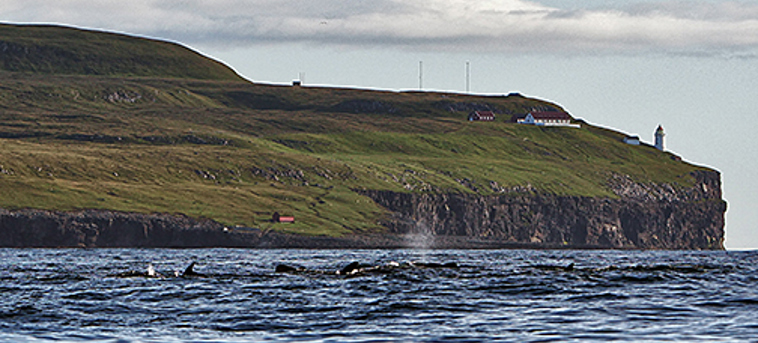
A millennium living from nature
The Faroese have always lived intimately with their natural surroundings as an island nation. Over the past millennium, a proud culture has evolved, based on the skill and knowledge required to make the best use of the limited local resources.
For more than a thousand years the Faroese have survived by keeping sheep and cattle, by fishing, and by hunting seabirds and pilot whales. Living was tough and everything nature could yield had to be fully utilised with available means and skill.
Faroese weather can be rough and merciless. But storms, driving rain and crashing waves have never crushed the spirit of the people who inhabit these islands.
The Faroese have always been known for their bravery. They swung down high cliffs to gather eggs, their only lifeline being a rope tied around their waists, they ventured out into the heavy ocean swells in small rowing boats to fish, and they herded sheep on steep and slippery mountainsides.
When they spotted a school of pilot whales, they drove them into bays, where the whales beached and were killed. The meat and blubber was distributed between all who participated in the drive and the local villagers, giving everyone something to eat. Still today, this is how pilot whales are harvested and shared among the people of the Faroe Islands.
Most of these ancient hunting traditions are kept alive in the Faroes today. Faroese still have a very close relationship with nature and treasure the quality of life and community bonds that this connection maintains.
Faroese people from all walks of life also keep sheep, hunt birds and participate in whale hunts in their spare time. These modern-day, traditional forms of food production are a welcome contribution to the household economy.
If the Faroese did not maintain these connections with their own food, much more would have to be imported. This would also have a significant extra impact on the environment, considering the fuel needed for transport.
FOOD
SUSTAINABLE
COMMUNAL
REGULATED


